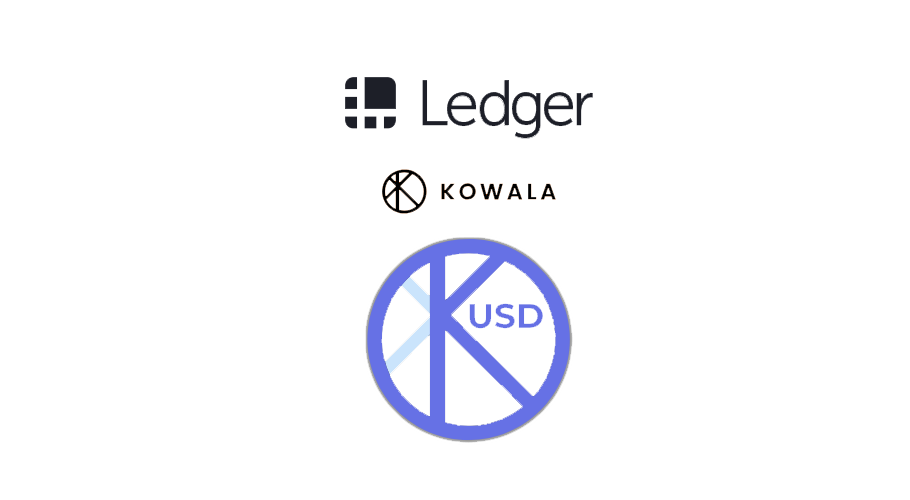Kowala, a stablecoin protocol that maintains price-pegs to fiat currencies by robotically minting and burning coin supply in accordance to user demand, announced that their flagship project, the dollar-tied “kUSD”, is the first stablecoin to win public platform support from Ledger, a leading bitcoin and crypto hardware wallet company.
In addition to the ability to store kUSD, Kowala users will also be able to use the Ledger devices to store their mUSD, the token that allocates mining rights on the network. The Kowala stablecoin joins a handful of projects as part of Ledger’s 3rd-party application rollout, which will allow its users to manage their virtual assets via Ledger Live, a Windows, Mac, and Linux desktop app.
“The importance of Ledger’s decision to publicly support kUSD as the first stablecoin with an app on its platform cannot be understated. One one level, this move is a huge signal for industry confidence in our price-stabilizing mechanisms, which employ unique money supply minting and burning features to eliminate the need for cash or gold reserves. More importantly, this support also increases access to a stable and consumer-friendly cryptocurrency for millions of people around the globe. The full potential of this technology is tied to consumers’ ability to make actual use of it in their daily lives. As the most decentralized stablecoin project on the market, it is our hope that this hardware accessibility will increase crypto inclusion for those living in highly inflationary economies who require usable currency, rather than speculative investments.”
Konsensus: The Kowala Consensus Protocol
The consensus protocol of Kowala, Konsensus, is a formal set of rules that allows a decentralized group of participants to agree on the advancement of the blockchain, including the handling of transactions and the distribution of incentivizing rewards.
Konsensus is derived from Tendermint, a mostly asynchronous consensus protocol which is itself based on Byzantine Fault Tolerance (BFT). Kowals chose to base its work on Tendermint because it has achieved transaction performance that is far superior to other widely used, proof-of-work-based blockchain consensus protocols and because it has a well-understood security profile. Like Tendermint, Konsensus requires its participants to be in constant contact with each other
In Konsensus, a network is comprised of two or more nodes connected by a well-defined communications protocol. A node, in this context, is a computer running a Kowala Protocol-compatible mining client. Communication is achieved using the standard Ethereum model of TCP and UDP.
Like other cryptocurrencies, kUSD is mined. For every block, all qualifying miners have the chance to earn a reward of kUSD by contributing to the advancement and security of the blockchain. A miner is an active node on the network that controls a minimum number (currently set at 30,000) mTokens. In order to advance the blockchain, the network must include at least one miner, though we would typically expect there to be many more.
More information on Kowala can be found in their newest whitepaper.
